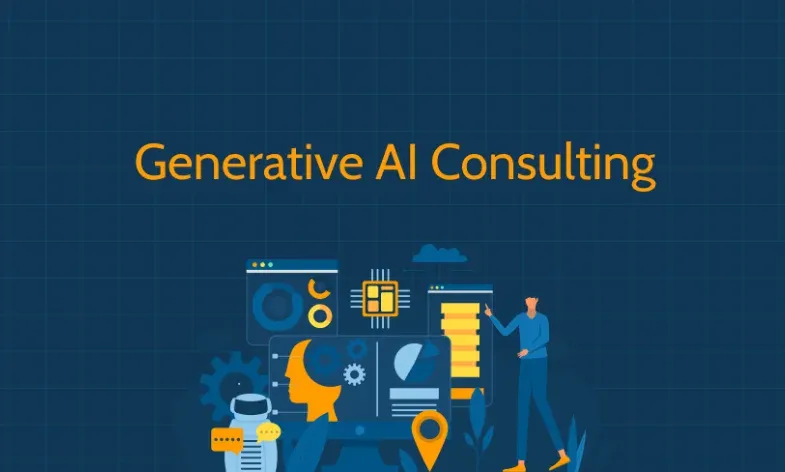Generative AI is transforming the consulting industry by enhancing problem-solving, automating tasks, and providing deeper insights for businesses. As firms increasingly adopt AI-driven solutions, understanding its benefits, risks, and real-world applications is essential for leveraging its full potential.
Benefits

The integration of generative AI in consulting offers several advantages, making firms more efficient and effective in delivering solutions to clients.
1. Enhanced Data Analysis – AI can process vast amounts of data quickly, identifying trends and patterns that might be overlooked by traditional methods.
2. Automated Report Generation – Consulting firms can leverage AI to generate reports, presentations, and summaries, reducing manual workload and increasing productivity.
3. Personalized Client Solutions – AI-driven insights enable consultants to provide tailored strategies based on historical and real-time data.
4. Improved Decision-Making – By simulating scenarios and predicting outcomes, AI assists in making data-driven business decisions.
5. Cost Efficiency – Automating routine tasks allows consultants to focus on high-value strategic work, improving operational efficiency and reducing costs.
Mitigating the Risks
While the benefits are substantial, generative AI also poses risks that consulting firms must consider and mitigate. Here’s how to address these challenges effectively:
1. Ensuring Data Privacy and Security – Implement robust encryption and compliance measures to protect sensitive data and align with regulatory standards.
2. Addressing Bias and Inaccuracy – Regularly audit AI models to identify and correct biases, ensuring fair and accurate insights.
3. Balancing AI with Human Judgment – Encourage consultants to use AI as a support tool rather than a replacement, maintaining critical thinking and decision-making.
4. Clarifying Intellectual Property Rights – Establish clear policies regarding ownership and use of AI-generated content to avoid legal disputes.
5. Upholding Ethical Standards – Implement ethical guidelines to ensure AI is deployed transparently and responsibly, minimizing risks of misinformation or misuse.
Real-World Cases

Several consulting firms have successfully integrated generative AI into their operations, showcasing its practical applications.
-
McKinsey & Company – Utilizes AI-powered analytics to help businesses optimize supply chains and improve operational efficiency.
-
Deloitte – Implements AI-driven automation tools to streamline tax compliance and financial reporting for clients.
-
Boston Consulting Group (BCG) – Uses AI to generate market research insights and scenario simulations for strategic planning.
-
PwC – Employs AI-based chatbots to enhance client interactions and automate routine advisory tasks.
-
Accenture – Leverages AI to develop innovative digital transformation strategies tailored to industry-specific needs.
Generative AI is revolutionizing the consulting industry, providing powerful tools that drive efficiency, innovation, and data-driven decision-making. However, navigating its risks while maximizing its benefits is crucial for success. To learn how our AI-driven consulting solutions can empower your business, visit Origen Data Analytics and AI Services – Generative AI.







